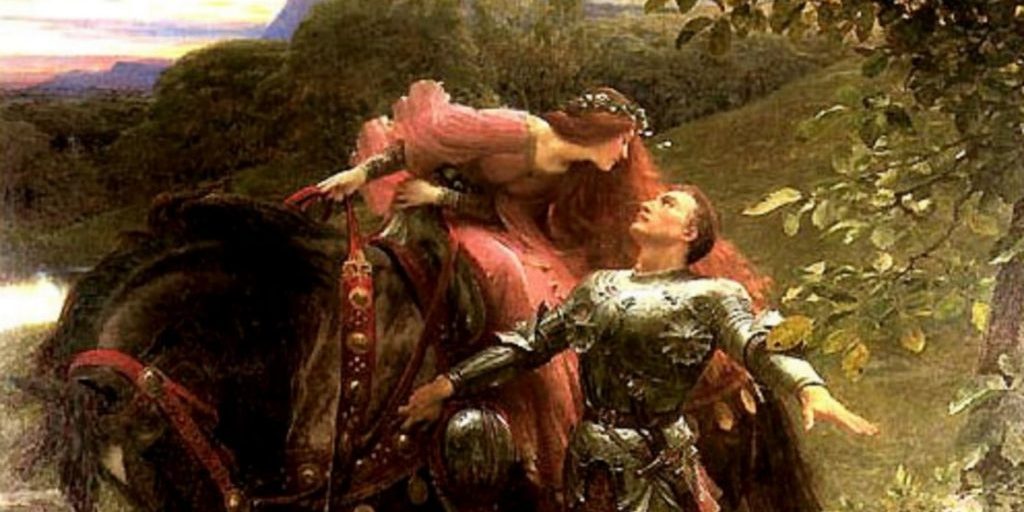
Introducing the Princess Bride
This will, Lord willing, be the first in a series of posts on the subject of the Bride of Christ in Genesis. It is the most extensively used metaphor in Scripture, providing a through line connecting covenants and uniting God’s people. It is the metaphor from which two other highly used metaphors stem, namely the Children of God and the Body of Christ. The Bride of Christ also sheds a great deal of light on our ecclesiology (the study of the church) and the nature of Christ’s immanence to his people. Understanding this metaphor affects how we live our Christian lives, how we do evangelism, and even our view of eschatology (the study of Christ’s return). Basically, my conviction is that if Scripture spends a great deal of time on it, so should we.
All that being said, the narrative actually begins outside the reaches of human history. Perhaps it seems ridiculous to find a starting point before the beginning, but in this case it is necessary. The beginning would be Genesis 1:1, but our narrative begins even before Scripture in a doctrine only alluded to by various passages. This is the pactum salutis, or Covenant of Redemption. Assuming the doctrine of election of which Paul and Christ spoke so often, the real narrative begins outside of time within the Trinity. God determined what would be created, how it would be created, and for what purposes. God chose, before the beginning of the world, who would be his.
So what bearing does this have on the Bride of Christ? It means the marriage is an arranged one. Those whom the Father chose, the son redeemed… The Father in glory, before the beginning of the world, chose who would be the Bride of the Son.
Understand, I am not arguing for a return to arranged marriages for culture, but in this case it is beautiful. Even within Scripture, we see an instance where even arranged marriages were atypical by calling for the approval of the children for the wedding. The issue in earthly arranged marriage is the fallibility of the parents and inherent disunion with the children, but in this case, the parent is perfection itself in perfect harmony with the perfect Son and changes the heart of the imperfect bride.
Why is this significant? This means that the intimate love of a betrothed husband originates before the world began. God’s love for his people, Christ’s dedication to the elect, began in the perfect unity of the Trinity before the earth was created. For every Christian, Christ’s love began before he spoke the heavens and the earth into existence. There is intrinsic value in longevity. People are fascinated by pyramids, Stonehenge, and other such ancient structures because of how they have withstood time. How much more rest and assurance does the Christian have in knowing that the love and dedication of God for and to them is older than the universe itself? As A.W. Pink says, “What assurance would be ours if, when we approached the throne of grace, we realized that the Father’s heart had been set upon us from the beginning of all things!”
One of the major issues seen in the arranged marriages of history, especially in the ruling class, is that they are often marriages of convenience, mutually beneficial for the parents. A prince in England is married to a princess of France in order to build alliances and fortify empires. However, with the Bride of Christ, it is a marriage of inconvenience for the one arranging. God had no need in and of himself, but desired to display his grace and love through a marriage of his perfect Son to an imperfect and sinful bride.
There are many reasons why people get married to a specific person, regardless of whether they are proper reasons. People marry for money and security, attraction, esteem, or even just good companionship. Edward Pearse asks his readers if they “are for” such things, only to go on and declare how Christ fulfills all the things that people seek in a spouse greater than any human could. In the segment on riches, he speaks of how the marriage is not one of mutual benefit, but of extraordinary benefit to the believer. “You are poor, miserable and naked; and will you not embrace this Christ offering Himself with all these riches toward you?”
Though we cannot know the mind of God and the nature of the Trinity in fullness because we are so limited as created beings, perhaps an imagined dialogue is helpful…
Peace, Father
Peace, Son
Peace, Spirit
Peace to all in one
Son, you know whom I have chosen; on whom I have set my heart. Does the covenant please you?
Yes, Father, I love her.
You know what will happen, what she will do, and what you must do to have her?
Yes, Father, but I love those whom you have given me.
Spirit, you know what you must do to apply the Son’s work, dwell within, and endure their grieving of you?
Yes, Father, but she will be loved in spite of herself.
Then when the LORD has sworn by himself, he shall not repent of it. When it is spoken, then shall it be.
Chris J. Marley is the Senior Pastor of Miller Valley Baptist Church in Prescott, Arizona. He holds an M. Div. from Westminster Seminary California (2009).
